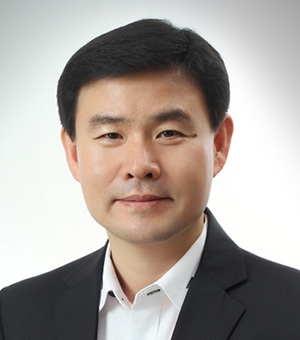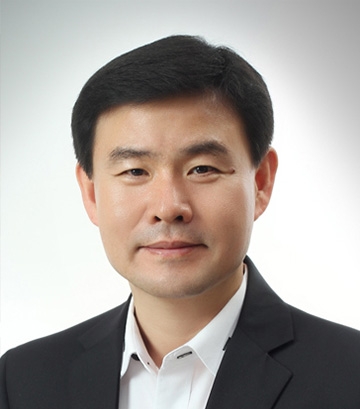Choe, Sunghwa
Before CRISPR/Cas-based genome editing is available, plant developmental biology heavily depended on study of the mutants created by random mutagenesis either using chemicals or DNA. T-DNA insertional mutagenesis facilitated this functional genomics due to easy way of cloning of the DNA flanking the T-DNA. However, due to the nature of randomness rather than directed insertion, T-DNA methods had to set up tedious steps of generating several hundred thousand of T-DNA mutants and then identify the T-DNA mutant for the gene of interest.
Following Zinc Finger Nucleases (ZFN) and Transcription Activator-Like Effector Nucleases (TALEN), CRISPR/Cas genome editing (GE) technologies facilitate targeted mutagenesis in microbes, plants, and animals. As part of microbial adoptive immune system, CRISPR/Cas systems are ubiquitously found in both archaea and eubacterial genomes. After elucidating the RNA-guided endonuclease function of the CRISPR/Cas system, people repurposed the system to edit the DNA of the diverse organisms in sequence-specific manner.
Our lab, Genome Editing Lab (GEL), is interested in understanding the biological importance of the thousands of GE enzymes cataloged in microbial genome databases. Through modern bioinformatics tools, we systematically classify the sequences and associate them with the biochemical functions. This study should lead us to identification of the GE enzymes with enhanced function but lower off-target effects.
In addition, we apply the GE technologies as a tool of synthetic biology. In plant system, we showed that plant genome can be edited in non-GMO way. In other words, without using DNA encoding for the GE enzymes and sgRNA, we could directly introduce pre-assembled ribonucleoproteins (RNP) to plant nucleus, edit genomes and regenerate whole plants.
Using the revolutionizing GE systems as gene screening technology, we are also actively searching for the genes that are essential in plant regeneration as well as cancer cell development. Through the research, we aim to narrow down to a couple of genes that are responsible for the process of plant cell regeneration and reveal novel targets for cancer treatments.
Education
- - 1994.8 - 1997.12 Ph.D. : University of Arizona (Plant Sciences and Biochemistry)
- - 2010.3.-2016.2. Bachelor : Computer Science, Korea National Open University
- - 1989.3 - 1991.2 Master : Botany, Seoul National University
- - 1984.3 - 1989.2 Bachelor : Botany, Seoul National University
Career
- - 2001 - Now Assistant Professor, Associate Professor, Professor, School of Biological Sciences, Seoul National University
- - 2016 - Now CEO, G+FLAS Life Science
- - 2014 - 2015 Director, SNU&G ConTech Academy
- - 2012 - 2014 Vice President , Advanced Institute of Convergence Technology (AICT)
- - 2015 - 2016 Visiting professor, Purdue University (Prof. Brian P. Dilkes)
- - 2008 - 2009 Visiting professor, Univ of Wisconsin Madison (Prof. Michael Sussman)
- - 2000 - 2001 Scientist, Ceres, Inc.
- - 1994 - 1997 National Scholar for Studying Abroad, Biology
- Choi S, You MK, Jeon Y-A, Lee J, Kim J, Park YJ, Kim J, Park J, Kim JK, Choe S: Metabolic engineering to enhance provitamin D3 accumulation in edible tomatoes. GEN Biotechnology 2023, 2(3):219-227.
- Kim HS, Kim DW, Kim S, Choe S: Biochemical characterization of the two novel mgCas12a proteins from the human gut metagenome. Sci Rep 2022, 12(1):20857.
- Park J, Yoon J, Kwon D, Han MJ, Choi S, Park S, Lee J, Lee K, Lee J, Lee S et al: Enhanced genome editing efficiency of CRISPR PLUS: Cas9 chimeric fusion proteins. Sci Rep 2021, 11(1):16199.
- Maharjan PM, Cheon J, Jung J, Kim H, Lee J, Song M, Jeong GU, Kwon Y, Shim B, Choe S: Plant-expressed receptor binding domain of the SARS-CoV-2 spike protein elicits humoral immunity in mice. Vaccines (Basel) 2021, 9(9).
- Woo JW, Kim J, Kwon SI, Corvalan C, Cho SW, Kim H, Kim SG, Kim ST, Choe S, Kim JS: DNA-free genome editing in plants with preassembled CRISPR-Cas9 ribonucleoproteins. Nat Biotechnol 2015, 33:1162-1164.



